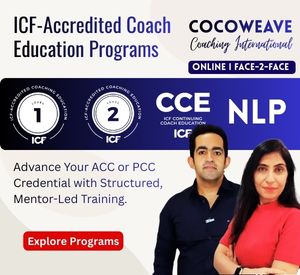More clients than ever are coming to coaching wanting to change their career or find work they love.
First, I believe it’s important to manage their expectations up front. While it’s possible to find work we love quickly, it’s more likely to take time, effort and patience. Sadly, there are no “one-size-fits-all” career coaching tools that give clients a magical answer!
Instead as their coach, you’re a facilitator. Your job is to help your clients brainstorm ideas, look for patterns, research, ponder, piece all the information together—and stay motivated—until they hit on that new role or career.
Let’s review some career coaching tools you can use to help. I mostly give these exercises as homework, then discuss and deepen understanding with the client in the next session.
Here are 9 Career Coaching Tools for You:
1. One great way to kick-start the process is with a Love and Loathe List. Ask your clients to identify what they love and loathe in their current role. Then help them reflect on their answers—identifying what they may want to focus on or avoid in any new career or role.
2. Get yourself the latest edition of, “What Color is Your Parachute” by Richard Bolles. Learn more about practical career and job searching, and recommend it to your clients! It has great exercises and practical tips, plus it’s updated annually with recommended websites and resources.
3. Identify their Top 10 Values. When we choose a career that is incongruent with our values, this tends to make us unhappy. Help clients look beyond what sounds exciting, pleases others or gives them status. Use values to help clients find roles and careers that are more deeply satisfying. Tip: Ask clients to score each potential career or role out of 10 for how well it meets each of their top 10 values.
4. MUST and Must NOT haves. Ask your clients to get a piece of paper and list career or role “MUST haves” on one side and “Must NOT haves” on the other. Any career or role can be compared to this list. “Must haves” are your client’s minimum requirements for a role or career and “Must NOT haves” suggest role or career unsuitability.
5. “Future Self” Inquiries. Guided meditation can be a great tool in career searching. Help clients meet their future self, see what their future self is now doing, or get advice and suggestions from their future self. Write your own script or search online for guided meditation scripts to adapt. The book “Co-Active Coaching” by Laura Whitworth et al., in its first and second editions has visualization scripts to use or adapt.
6. Personal SWOT Tool. Help clients identify their Strengths, Weaknesses, Opportunities and Threats. For details, search for “Personal SWOT Exercise” online. A Personal SWOT helps clients think about careers in terms of their strengths—and identify potentially “transferable” strengths. A client’s weaknesses might point to roles and careers to avoid, but don’t let them use this to get off the hook: Weaknesses can be minimized or removed (e.g., through training or delegation). This exercise also takes a bigger picture look identifying potential opportunities and threats, which can be extremely informative.
7. “Past Self” Inquiries. Great for journaling, ask your clients “What did you love to do as a child?” then “What about that did you love?” or “As a child, what did you want to be when you grew up?” then “What about that still appeals to you, and what doesn’t?” Then review and look for patterns, themes and clues for potential careers in the present.
8. Don’t Stop at Strengths; Identify their Talents! In Marcus Buckingham’s book, “Now Discover Your Strengths,” he describes talent as, “Any recurring pattern of thought, feeling or behavior that can be productively applied.” Therefore being charming, persistent, stubborn or even being nervous can be a talent (e.g., your worrying identifies problems). Then ask, “In what industry, job role or career could this talent be considered helpful?”
9. Encourage your clients to try new things—activities, courses or even take up an old hobby. Getting your clients doing different things will get them stimulated, meeting new people, creating new neural pathways and opening their minds.
Of course, sometimes a client may know what they want to do, but they’re afraid to speak it aloud. Our job may be to help them see the truth that is already there—and then support and encourage them to follow their heart.
Finally, there are many potential new roles or careers for each client. The challenge is to help them find something they’re excited to invest time—and themselves—in.
“When making a decision of minor importance, I have always found it advantageous to consider all the pros and cons. In vital matters, however, such as the choice of a mate or a profession, the decision should come from the unconscious, from somewhere within ourselves. In the important decisions of personal life, we should be governed, I think, by the deep inner needs of our nature.” Sigmund Freud
Disclaimer
The views and opinions expressed in guest posts featured on this blog are those of the author and do not necessarily reflect the opinions and views of the International Coach Federation (ICF). The publication of a guest post on the ICF Blog does not equate to an ICF endorsement or guarantee of the products or services provided by the author.
Additionally, for the purpose of full disclosure and as a disclaimer of liability, this content was possibly generated using the assistance of an AI program. Its contents, either in whole or in part, have been reviewed and revised by a human. Nevertheless, the reader/user is responsible for verifying the information presented and should not rely upon this article or post as providing any specific professional advice or counsel. Its contents are provided “as is,” and ICF makes no representations or warranties as to its accuracy or completeness and to the fullest extent permitted by applicable law specifically disclaims any and all liability for any damages or injuries resulting from use of or reliance thereupon.
Authors
Post Type
Blog
Audience Type
Coach Educators, Experienced Coaches, External Coaches, ICF Chapter Leaders, Internal Coaches, New Coaches, Professional Coaches, Team and Group Coaches
Topic
Coaching Toolbox, Discover - Your Coaching Career
Related Posts
The Power of Active Listening in Meaningful Coaching: Why Active Listening is the Most Essential Coaching Competency
Of all the foundational coaching competencies identified by the International Coaching Federation…
Allyship in Action: Coaching as a Catalyst for Change
Allyship is often framed as a value or an intention. In practice,…
Grace Under Fire: Building Stress Resilience for Coaches and High Achievers
There’s a unique kind of pressure that lives at the intersection of…







